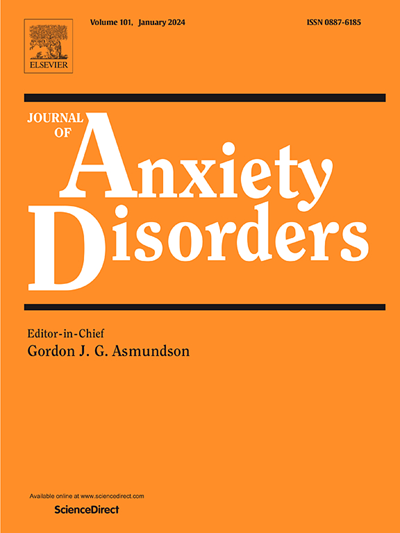使用机器学习方法预测创伤后应激障碍心理治疗的结果:系统回顾
IF 4.5
2区 医学
Q1 PSYCHIATRY
引用次数: 0
摘要
创伤后应激障碍(PTSD)有许多治疗方法,然而,目前缺乏数据驱动的治疗选择和适应方法。机器学习(ML)可能有助于改善对治疗结果的预测,并在实践中实现精确的精神卫生保健。目的系统回顾应用ML方法预测成人PTSD心理治疗结果(如症状改变、辍学率)的研究,并评价其方法的严谨性。方法:这是一项预注册系统评价(CRD42022325021),综合了四个研究数据库中符合条件的临床预测研究。使用PROBAST工具评估偏倚风险。对研究方法和结果进行叙述综合,并对ML最佳实践的依从性进行评估。结果17项研究符合纳入标准,包括来自实验和观察性研究设计的样本。所有研究都被评估为具有高偏倚风险,特别是由于样本不足和缺乏样本量计算。训练样本量为N <; 36-397。这些研究应用了各种各样的机器学习方法,如决策树、集成和增强技术。五项研究使用无监督机器学习方法,而其他研究使用监督机器学习。在超参数调整和交叉验证方法的报告中存在不一致。只有一项研究进行了外部验证。结论:sml有潜力推进PTSD的精确心理治疗,但要实现这一点,ML方法必须更严格地遵守最佳实践指南。本文章由计算机程序翻译,如有差异,请以英文原文为准。
Using machine learning methods to predict the outcome of psychological therapies for post-traumatic stress disorder: A systematic review
Background
A number of treatments are available for post-traumatic stress disorder (PTSD), however, there is currently a lack of data-driven treatment selection and adaptation methods for this condition. Machine learning (ML) could potentially help to improve the prediction of treatment outcomes and enable precision mental healthcare in practice.
Objectives
To systematically review studies that applied ML methods to predict outcomes of psychological therapy for PTSD in adults (e.g., change in symptoms, dropout rate), and evaluate their methodological rigour.
Methods
This was a pre-registered systematic review (CRD42022325021), which synthesised eligible clinical prediction studies found across four research databases. Risk of bias was assessed using the PROBAST tool. Study methods and findings were narratively synthesised, and adherence to ML best practice evaluated.
Results
Seventeen studies met the inclusion criteria, including samples derived from experimental and observational study designs. All studies were assessed as having a high risk of bias, notably due to inadequately powered samples and a lack of sample size calculations. Training sample size ranged from N < 36–397. The studies applied a diverse range of ML methods such as decision trees, ensembling and boosting techniques. Five studies used unsupervised ML methods, while others used supervised ML. There was an inconsistency in the reporting of hyperparameter tuning and cross-validation methods. Only one study performed external validation.
Conclusions
ML has the potential to advance precision psychotherapy for PTSD, but to enable this, ML methods must be applied with greater adherence to best practice guidelines.
求助全文
通过发布文献求助,成功后即可免费获取论文全文。
去求助
来源期刊

Journal of Anxiety Disorders
Multiple-
CiteScore
16.60
自引率
2.90%
发文量
95
期刊介绍:
The Journal of Anxiety Disorders is an interdisciplinary journal that publishes research papers on all aspects of anxiety disorders for individuals of all age groups, including children, adolescents, adults, and the elderly. Manuscripts that focus on disorders previously classified as anxiety disorders such as obsessive-compulsive disorder and posttraumatic stress disorder, as well as the new category of illness anxiety disorder, are also within the scope of the journal. The research areas of focus include traditional, behavioral, cognitive, and biological assessment; diagnosis and classification; psychosocial and psychopharmacological treatment; genetics; epidemiology; and prevention. The journal welcomes theoretical and review articles that significantly contribute to current knowledge in the field. It is abstracted and indexed in various databases such as Elsevier, BIOBASE, PubMed/Medline, PsycINFO, BIOSIS Citation Index, BRS Data, Current Contents - Social & Behavioral Sciences, Pascal Francis, Scopus, and Google Scholar.
 求助内容:
求助内容: 应助结果提醒方式:
应助结果提醒方式:


